A fruit-bearing plant that is rich in benefits. Pepaya / Papaya / Carica papaya
Hello my loyal and beloved friends, nature and plant lovers. How are you? I wish you all the best and continued success. It's great to see you again in this post and share about nature. On this occasion I would like to share about a fruiting plant that is known to be native to southern Mexico and northern America. This plant in our area is known as Papaya or in English Papaya. When I walk around in my yard, I am very happy with this plant and its fruit is very abundant. This plant is the result of my father's hard work taking care of it.
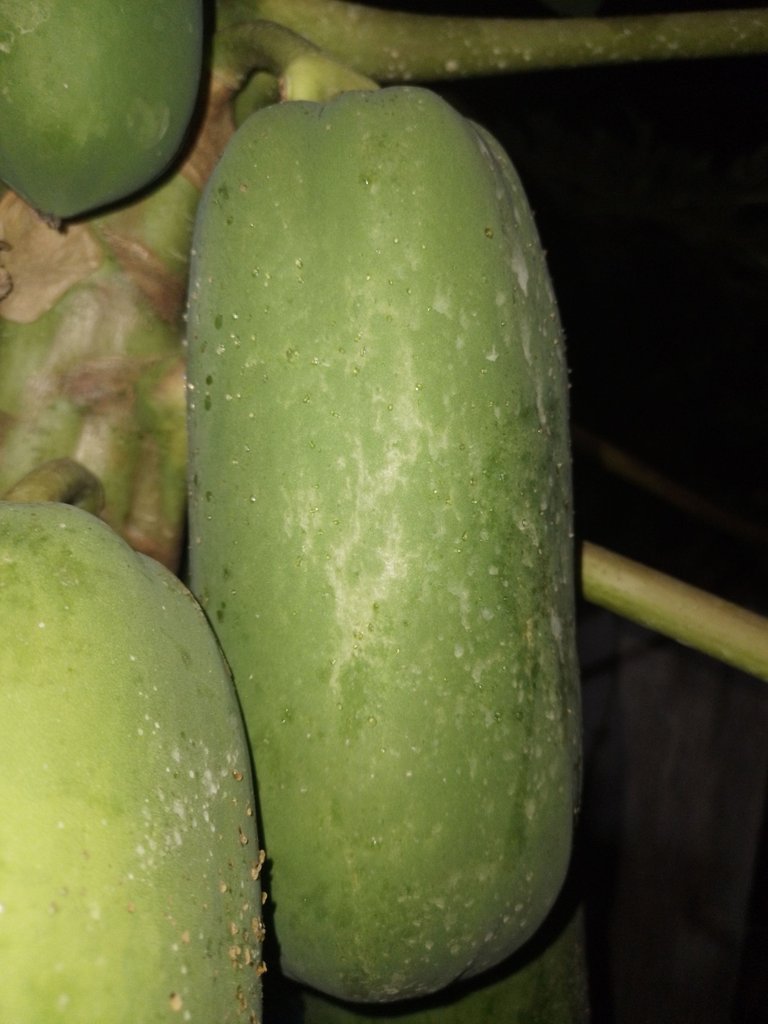
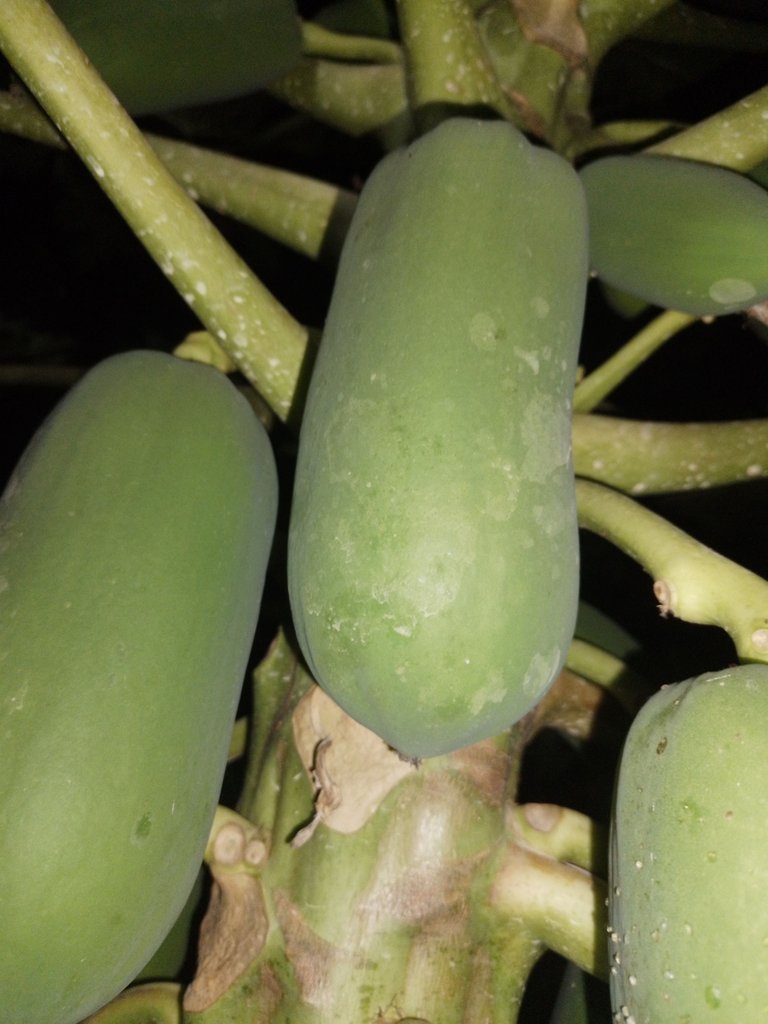
The plant, which has the scientific name Carica papaya, is found in many tropical areas, some humans cultivate it for its fruit. The fruit can be eaten when it is young or when it is ripe. But mostly the young flesh is widely used as a vegetable and the ripe flesh is widely used as fresh fruit, juice and others. Even in some places the half-ripe Papaya fruit is used as a mixture of sweet fruit salad with other fruits such as pineapple, bengkoang, star fruit, apples, guava and so on.
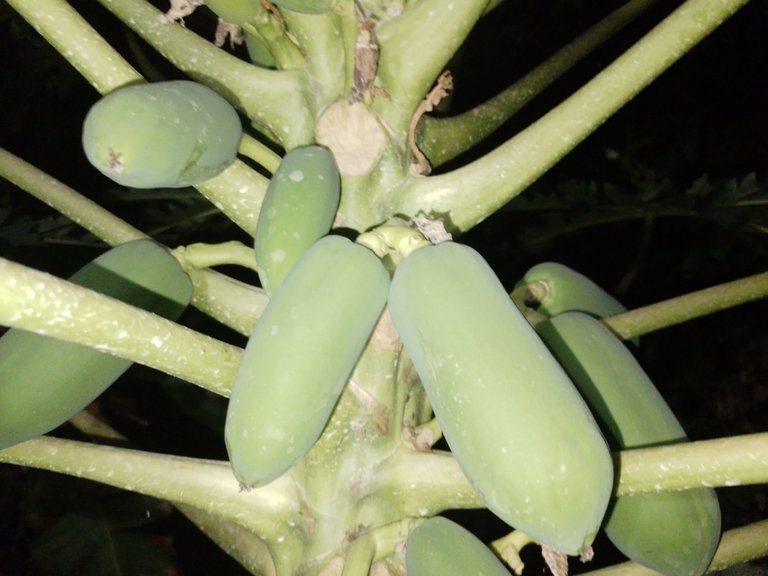
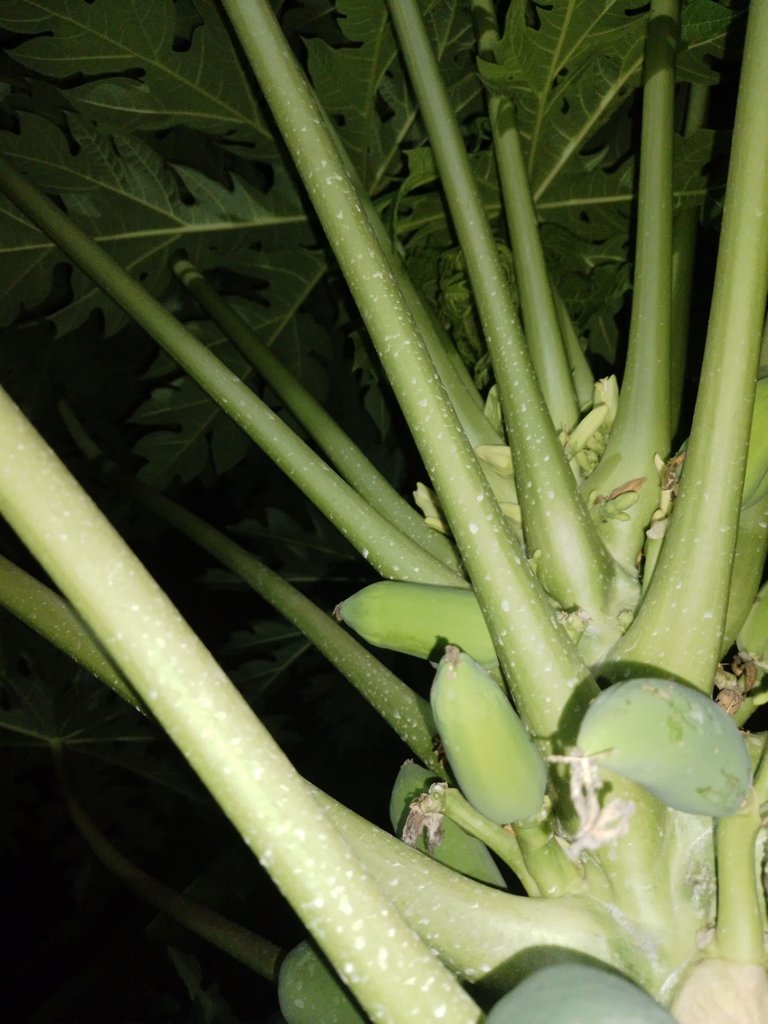
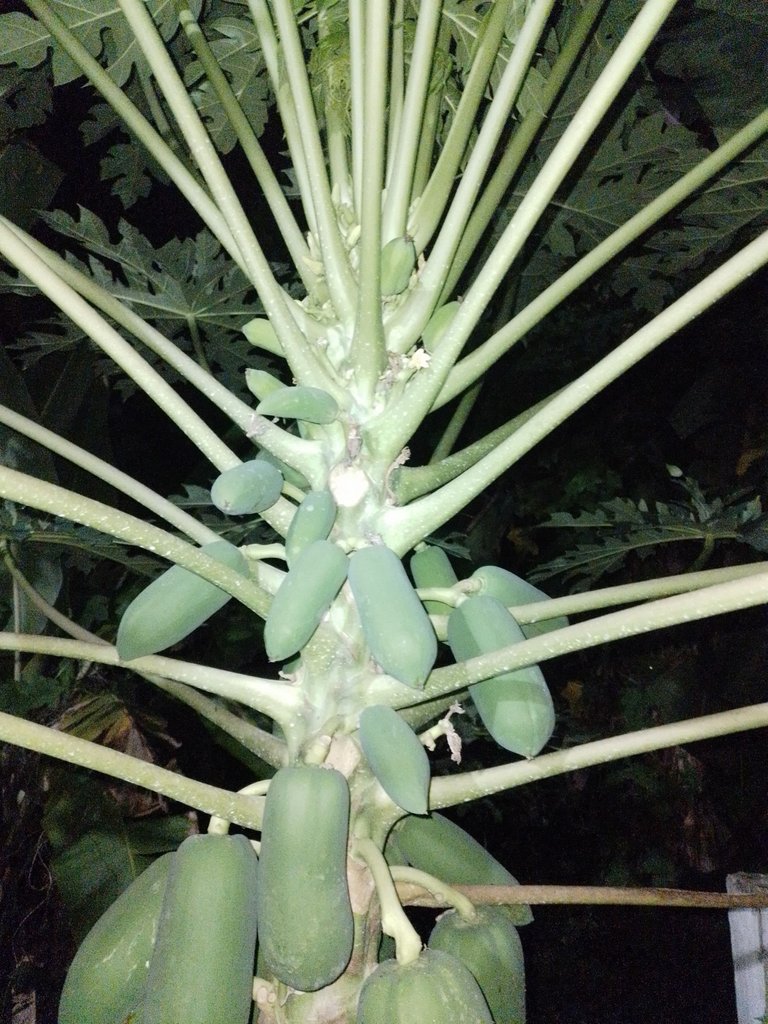
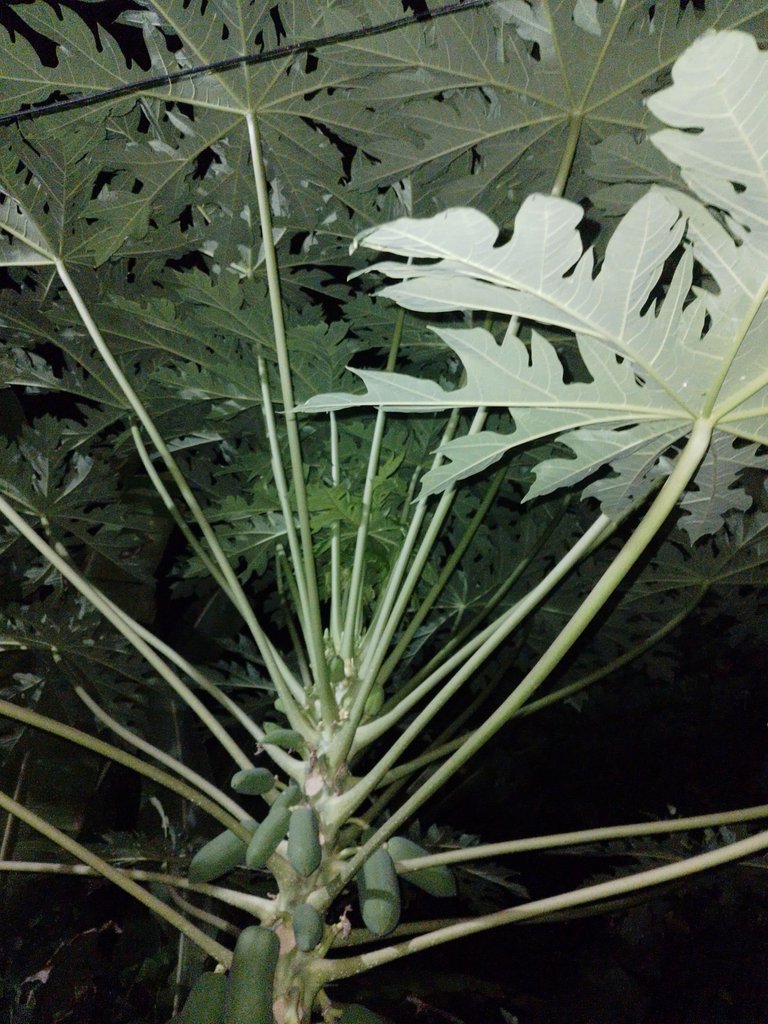
Papaya contains the enzyme papain, which breaks down protein bonds in meat. Therefore, papaya is known as a natural ingredient to tenderize meat. The content of the papain enzyme is in the sap. Not only that, the nutritional content in the fruit is also very impressive, making this fruit very beneficial for the health of the body. Some of the nutritional content includes: Protein, Fiber, Carbohydrates, Calories, Fat, Potassium, Folate, Calcium, Magnesium, Antioxidants, Vitamins A, C, E, K, B1, B2, B3, B5, B6, and many others.
These ingredients will have a very good impact on health such as improving the immune system, preventing alzheimer's, healing burns and wounds on the stomach lining, improving the digestive tract, preventing heart disease, nourishing the skin and hair, preventing inflammation in the body, preventing prostate cancer, optimizing eye health, improving sperm quality, optimizing bone health, increasing female fertility, smoothing menstruation, overcoming menstrual pain and so on. But these benefits are all by consuming it in moderation, because if consumed in excess, it will cause side effects such as: stomach irritation, indigestion, allergies, rashes and possibly others.
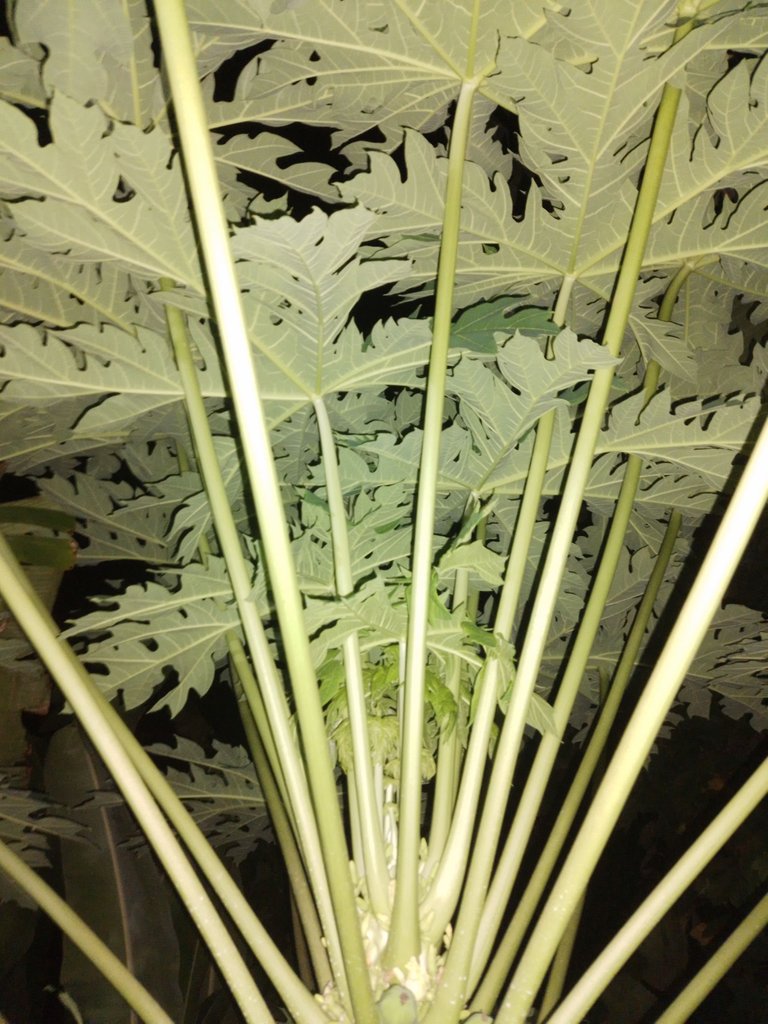
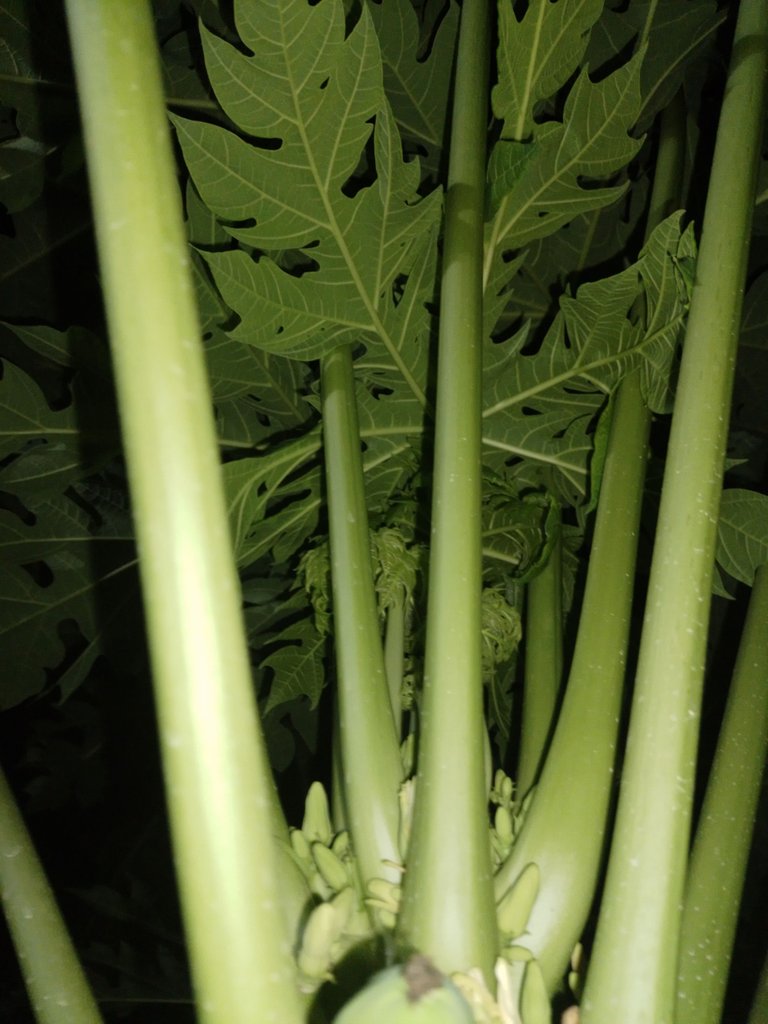
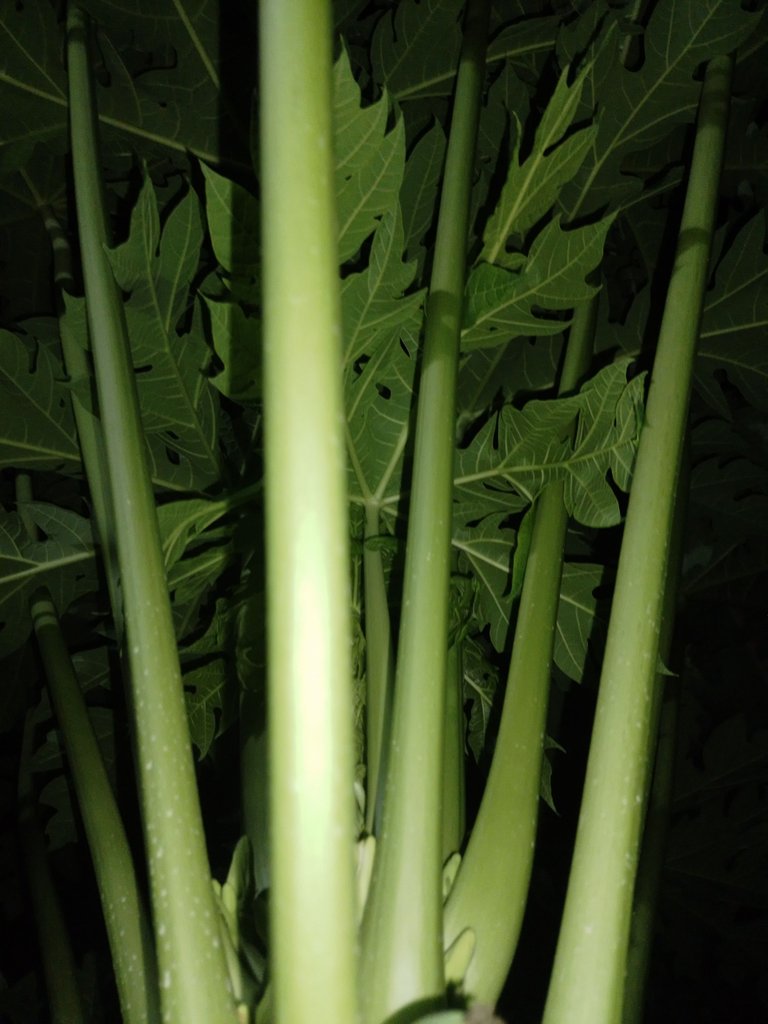
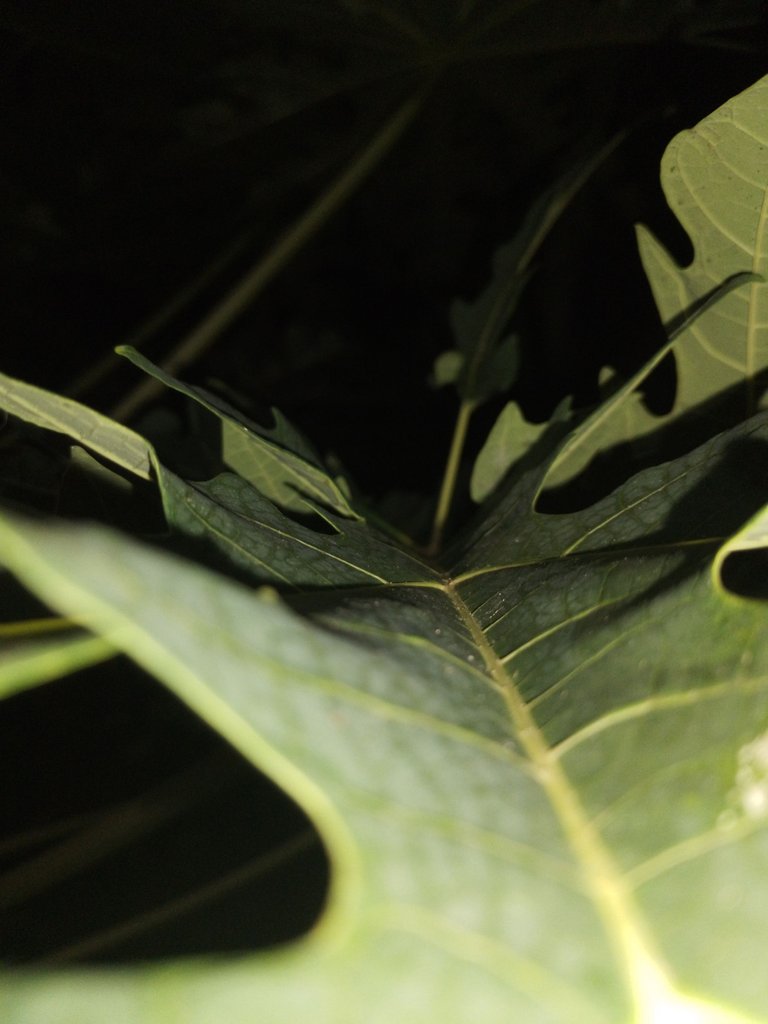
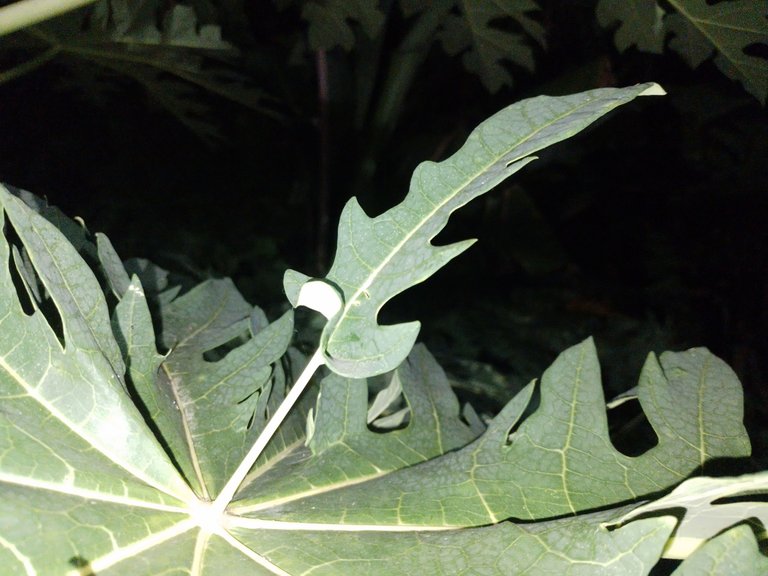
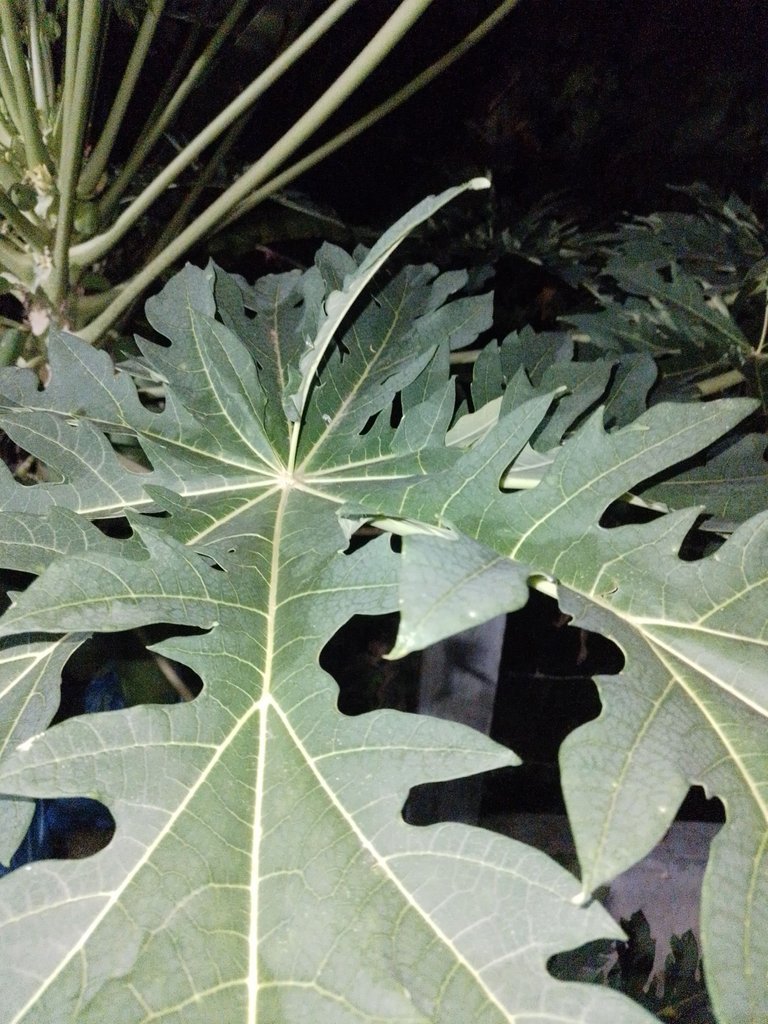
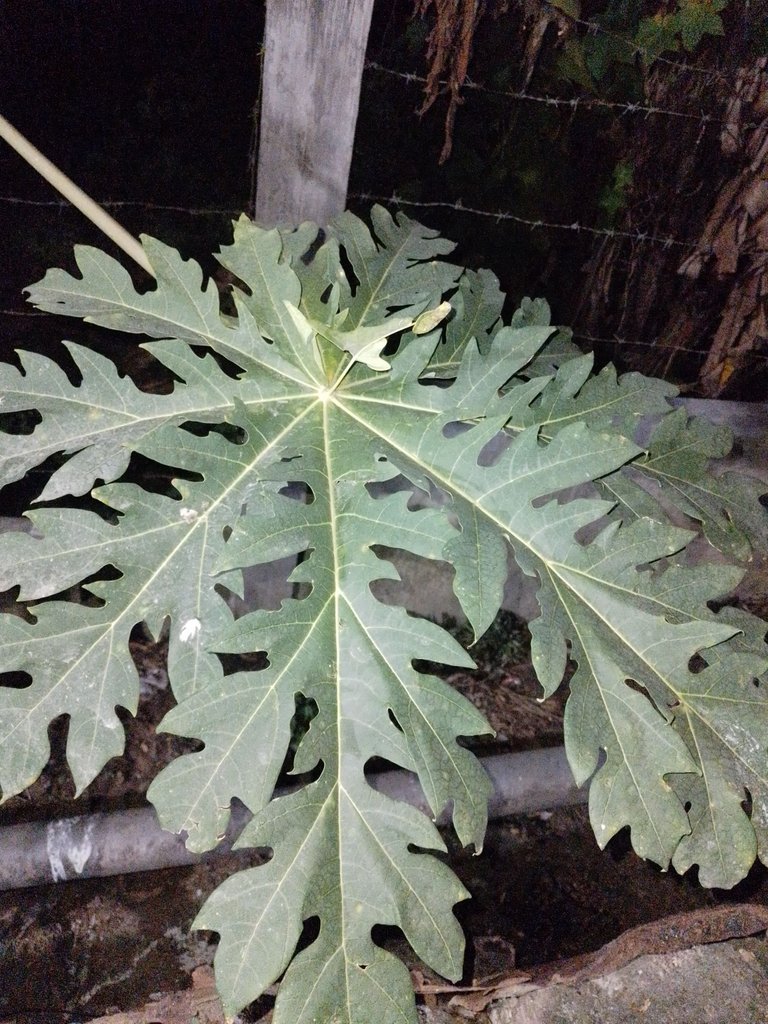
Not only is the fruit rich in benefits, the leaves of this plant are also very rich in health benefits. So that some people become papaya leaves as tea, juice, extracts and many are used as dishes. This is because the leaves contain nutrients such as Vitamin C, A, B1, E, Protein, Carbohydrates, Water, Fat, Fiber, Potassium, Calcium, Magnesium, Calories, Iron, Phosphorus, Carpaine, Carposide, Beta Carotene, Antioxidants, Papain Substances and many others.
Because of its nutritional content, papaya leaves are very good for health such as: overcome dengue hemorrhagic fever, overcome sore throat, control blood pressure, control blood sugar, prevent and overcome constipation, prevent and overcome bloating, overcome joint pain, treat body aches, eliminate dandruff, thicken hair, prevent wrinkles, herpes natural medicine, accelerate wound healing, prevent acne, have anti-cancer properties, inhibit bacterial growth, anti-malaria, increase body immunity, control high blood pressure, reduce menstrual pain, help digestion, prevent emphysema, have anti-inflammatory, maintain eye health, increase platelets, good for the liver, maintain heart health and so on.
All of these benefits by consuming it properly and not excessively because when excessive will cause side effects such as causing allergies, danger to pregnant women, damage to the esophagus, nausea, vomiting to stomach ulcers.
That's a little discussion about this fruitful plant, which is very good for health. Hope it's useful and you like it. I say goodbye, hopefully we can meet next time. Thank you for everything. Greetings from nature lovers.
thanks for sharing
We appreciate your work and your post was manually curated by @none! from the DNA team!
Reach us on Discord to learn more about the project!
Thank you very much for the curation @none, @dna.org and the team. It's really very valuable.